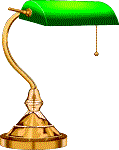A VICARAGE FAMILY,
by Noel Streatfield,
Collins, UK, 1963. This edition 1995. PB, 317 pp.
I bought this one from Angus and Robertson, Devonport.
I’ve read a great many of Noel Streatfield’s books
over the years, beginning with “Ballet Shoes”. I think the
only one I didn’t enjoy was “The Growing Summer”.
I also, many years ago, read her biography of Edith Nesbit,
“Magic and the Magician”.
Streatfield’s books spanned a long period, with the
early ones set in the 1930s, and some later ones
(notably the “Gemma” series) set in the ‘60s. Her
very last book, supposedly (and very optimistically)
to be part 2 of a new series, was set back in the early
days of the century. She must have been in her eighties
when it was written, and it was very disjointed.
I have nineteen of Noel Streatfield’s books, but I
have never known much about the author herself.
“A Vicarage Family”, which she, in her foreword,
terms “an autobiographical novel”, fills in many of the
gaps. The book traces the life of “Vicky Strangeway”
from twelve to sixteen, ending during the first year of
the Great War. Names were changed, Noel says,
and a cousin who stayed with her family for some
holidays was transformed into a permanent part of the
household, but apart from this, “here is the truth as I
remember it”.
The picture of Vicky shows a rebel, the second
child in a family of four surviving children. Father comes
over as a gentle, saintly vicar who cannot understand
why his own family cannot be as contented as he and
his siblings were. Mother is often hasty, sometimes
unfair, preferring her children when they are young or
ill. There is an elder artistic sister, “Isabel” who is asthmatic,
and a younger, musical sister “Louise” who is the beauty.
The youngest child, and only boy, Dick, is a good, diligent
child who thrives on order. “John”, the cousin, is a
sensitive teenager who dreads the Indian service expected
of him by his father.
Other characters, grandparents, servants, parishioners,
teachers are drawn into the novel as well. The story is
told in the third person, including some conversations
and thoughts that must have been reconstructed or
extrapolated years afterwards. The events unfold
quietly, gardening, moving house, getting up plays and
entertainments, visits, holidays, troubles and education.
At first the months go by in detail, but later the book
picks up speed and birthdays come and go rather suddenly.
Viewed as fiction, the book is flawed, with its uneven
pacing and the untied threads, events and reasons hinted
at but never quite made clear. Louise and Dick reiterate
often that they intend never to be parted, yet Louise also
intends to marry young and have many children. What
happened to them? There is a hint that Dick inherited his
grandfather’s house many years later, but that’s all. It seems
that Isabel never made it to art school, but she did survive
into adulthood. Even Vicky’s future is very unclear. She
became a writer, but when? Presumably she didn’t marry,
perhaps because John, to whom she was much attached,
died in the war. Father died many years later of angina,
but what about Mother?
In a novel, these things would be left properly to the future,
but since this is supposed to be a true account, and since
so much was foreshadowed, it would have been nice if
Noel had rounded things out in an epilogue. Instead, the
books ends very abruptly with the news of John’s death.
Apart from the account of Vicarage and village
life in this period, and hints to show how the author’s
character was formed, the main interest lies in the
characters and events later echoed in the novels. Fathers
and grandparents or nannies feature quite strongly in
Streatfield’s books, but aside from those in the “Gemma”
series, “Party Frock” and “The Painted Garden”, it’s difficult
to recall any satisfactory mothers.
The themes of strong-natured, talented, often misunderstood
children repeat so often that it’s easy to wonder if Noel was
reflecting her sisters’ undeveloped gifts or compensating for
the fact that her own talent, for writing, was much less showy.
One interview between Vicky and her headmistress
(another strong-natured but maddeningly incomplete
portrait) may be particularly telling; “(Your essay) was
shown to me,” says Miss French, “Although naturally
you will have to earn your living in some other way,
for only the exceptionally gifted can earn it as an
author, writing could supplement whatever you are
able to earn.”
Did “Vicky” ever work at any other position? Noel
Streatfield doesn’t say, and for all its details and
ruthlessly honest appraisal of “Vicky’s” failings and
strengths, the hints and echoes of “A Vicarage Family”
raise at least as many questions as they answer.

 Published in Melbourne, Victoria, Australia
Published in Melbourne, Victoria, Australia